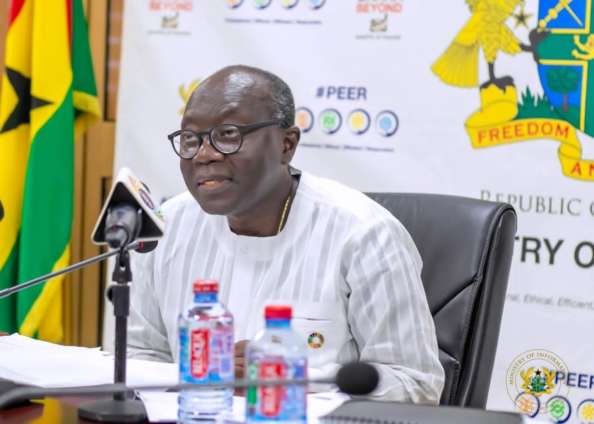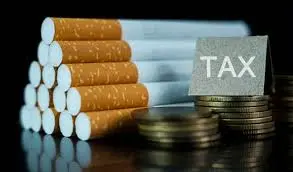One of the critical pillars of any economy globally, essentially has to do with the energy sector of the country, whereby its operations cannot be taken for granted.
More than just serving customers and individuals in their various homes, the energy sector is a major driver of industries and businesses in any thriving and robust industry, and Ghana’s energy sector is no different from the rest.
However, for a while now, it has had to contend with crippling situations, mostly debt accrued over the years, and government as it seems now, is trying its best to suture the ever-growing tear within the fabric of the energy sector.
Not long ago, the country was held hostage by Independent Power Producers (IPPs) who demanded their ‘pound of flesh’ by way of payments of debt of over $1 billion accrued over the years.
With surpassed deadlines and reinstatement of same, coupled with Ghanaians sitting on tenterhooks over the prospects of an imminent light out or ‘dumsor’ situation, some payments were made.
Nonetheless, Ghana is certainly not out of the woods yet, as other operators within the energy industry are equally demanding their share of the ‘cake’.
On October 26, 2023, the Ghana Grid Company Limited (GRIDCo), chose brevity in explaining the reason for the sporadic power cuts experienced in parts of the country.
According to a statement issued by the company, there was limited gas supply to Tema leading to a shortage of 550MW at peak time. This statement certainly stirred the hornets’ nest, inciting the minority in parliament and other experts to identify the root cause of the problem – being a debt situation.
It is recalled that Fitch Ratings revealed that the energy sector in Ghana represented the largest driver of Ghana’s national debt, with the country owing independent power producers a staggering $1.58 billion.
Member of parliament for Bongo, Edward Bawa, noted that keen observers of the energy sector knew that this was a disaster waiting to happen since the non-operationalization of the Cash Waterfall Mechanism (CWM) and debt to the West Africa Gas Pipeline Company (WAPCo).
He explained that WAPCo carried out its threat and curtailed the flow of gas from the Western Region to Tema, hence the limited supply of gas to the Tema enclave causing a supply gap of 550MW at peak time.
To this end, he urged government to as a matter of urgency intervene as the shareholder of ECG and make the “minimum expected payment of $8.31 million so that Ghanaians would not have to sleep in darkness again”.
“In the medium to long term, government must make arrangements to pay off the total indebtedness of ECG to WAPCo and immediately re-institute the Cash Waterfall Mechanism.”
Edward Bawa
Payment of debt to operators in the energy sector
Momentarily, Ghanaians, businesses and industry player alike can heave a sigh of relief as the Ghana Grid Company LTD (GRIDCo) and the Electricity Company of Ghana have announced the successful restoration of power following the recent intermittent power cuts across the country.
This development is a result of the resumption of gas supply to the generating plants in Tema from Takoradi, the companies indicated in a joint press release.
Although not much was said as to whether any payments were made, that conversation is certainly on the table in enabling the restoration of power to the country.
That notwithstanding, a more permanent solution is required.

Finance minister Mr Ofori-Ofori-Atta earlier in June this year, revealed that with Ghana’s legacy debt in the energy sector reaching about US$2 billion as at the end of May 2023, and an estimated shortfall of US$5.9 billion between 2023 and 2025, due to the current conditions of SOEs and Independent Power Producers (IPPs) in the value chain in the sector, the sector has been prioritized for comprehensive reforms.
He indicated that the structural reform agenda is consistent with government’s own Public Financial Management Strategy, to transition from Central Government to general government operations.
“It is expected that structural reforms in the sector should reduce the shortfall by at least US$2.95 billion over the period.”
Ken Ofori-Atta
Moreover, he highlighted that a number of structural reforms are being undertaken with respect to the $ 3 billion International Monetary Fund (IMF) deal.
Indeed, more than paying and writing off debts, a more sustainable solution, geared toward relieving this key sector of the debt pressure is critical. This isn’t an issue merely to be politicized on who did what or compromised a working mechanism.
For all its worth, the harm has been done, and Ghana needs to look ahead and not return to the days of ‘dumsor’.
To take a leaf out of the finance minister’s book, government both present and future ones must have the ability to institute better governance standards of critical institutions, such as ECG, GRIDCo and others to “address their liabilities and promote their growth”.
Also, as he has made assurances to the effect that Ghanaians hope that this will be “significantly improved, especially in this period of collective reform”, will be achieved.
READ ALSO: Frontiers Health Services Rejects Baseless Corruption Allegations On COVID-19 Testing


















